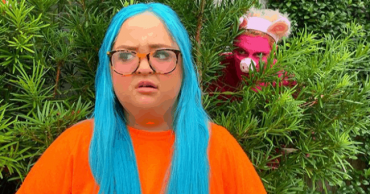The Glasgow Film Festival (GFF) which was launched in 2005 happens on an annual basis in Glasgow, Scotland. It has been happening for thirteen years and is among the most anticipated as well as highly regarded film events that sees thousands of people attend every year. Only a few people made submissions in the year it started (around 6,000). Things, however, have changed fast because in 2017 the numbers have been recording breaking with more than 40,000 individuals submitting their work.
The primary reason behind the development of the festival is to run an international program that features some of the best films across the globe. It offers a high profile platform for film experts working on both short form and feature projects. Developers aim at enabling audiences to experience the very best when it comes to international cinema. A unique aspect of the festival is that it also features a dynamic fusion of cross-sector screen based commissions and events.
GFF was as a result of like-minded individuals coming together and sharing ideas focusing on audience response and experience as the heart of the creative process. GFF makes use of the talents of Scottish curators and artists as well as the reaction from a distinctively critical audience. These are the main pillars of the growth and development of the program on a yearly basis.
The festival in just a few years has grown to be one of the leading events in the UK. It features new international and local films from a variety of genres, ground-breaking art-house experimentation, mainstream crowd pleasers, and rare cult gems alongside beloved classics. Glasgow Film Festival also presents interactive workshops, filmmaker guest appearances, and discussion panels that make it fun, informal, thought-provoking, and a must-attend event. The number of people attending the event seems to increase year-after-year.
One of the things that has managed to pull crowds for GFF is the fact that directors take time to identify unique venues that avail great stages for hosting extraordinary pop-up cinema events as well as the free screening of a couple of productions every day of the festival. It is one that pushes boundaries while at the same time making sure that it is accessible to everyone and it is entirely inclusive.
2015 was a very significant year for the festival. It saw it feature 174 events including 65 Scottish premiers, 33 UK premiers, and 11 world premieres. At the same time, the festival introduced its first Audience Award. It was a first of its kind, and Tom Browne from Radiator took home the award. Films eligible for this specific award are typically from first and second-time directors. These can either be documentary or fiction. Attendees are the ones in charge of voting for the individuals that win the award, and it is only at the Closing Gala of the Festival that the winner is announced.
Some of the influences of the Glasgow Film Festival include:
- TIFF (Toronto International Film Festival) and their partnership approach earning the name of ‘festivals of festivals. It focuses on audiences while supporting grassroots organizations.
- SXSW which is arguably the coolest event in the film and music calendar
- Austin’s cultural outsider that has a remarkable reputation for growing to become the ideal location in the globe to do music and film business.
 Follow Us
Follow Us



